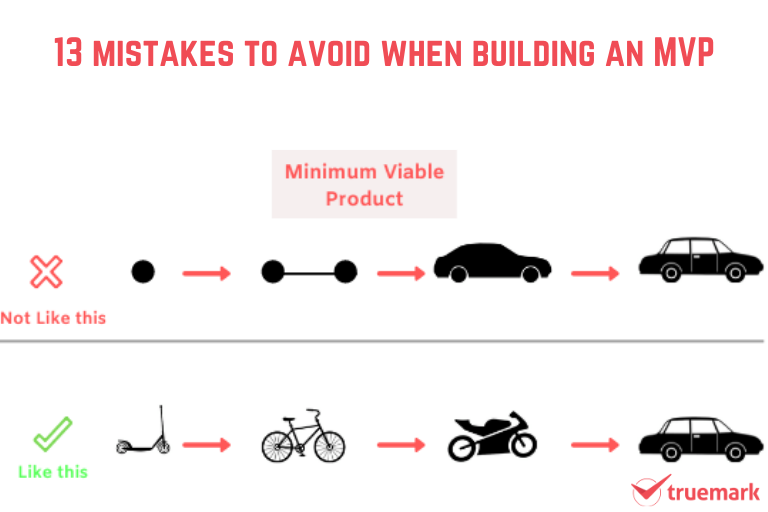In-house or outsourcing, which is best for the project? Many business owners get stuck on this question. And it is obvious since with so much competition going around, finding the right developer can be challenging. Everyone wants the best development team.
However, many companies, especially startups, that are tight on budget, opt for outsourcing development. Nonetheless, many lean towards in-house development. Why? Because it depends on their needs, requirements, and situation.
When it comes to in-house vs outsourcing development, which is an ever-going debate, some choose one over another. It varies from project to project and your needs and requirements.
So, today we will be going through in-house vs outsourcing development to help you decide what’s best for you.
In-house development
As its name suggests, in-house development refers to nurturing and working with developers in your company. You won’t be involving any experts from outside your firm. Not only developers but whatever resources you have within your working environment, you will be utilizing them the best way.
The best thing about in-house development is that you will be building your own development team from zero. You can select anyone and train them yourself according to your needs and requirements. You can have your own dedicated team that is passionate about their work. Pretty amazing that you can have people who you need the most.
To help you understand in-house development better, let’s see its pros and cons.
Pros
Common goals
The employees in your company know about your goals and objectives. Everyone works closely with each other, which will help build a strong relationship. In a sense, they are more integrated into the working culture of the company. They have a deep understanding of what a company’s goals are and what it expects from them. So, they will value them and give their best to achieve them.
Moreover, they are more focused on the tasks they are given. So, they deliver better results since they are hired for the very same purpose.
Commitment
As stated earlier, when employees know what the company is expecting from them, they feel motivated and are more committed to their work. They give their best because that doesn’t only help the company, but for them as well. They learn new skills and boost their knowledge. Plus, there is appreciation, promotion, bonus, etc., which encourages them to work effectively and efficiently.
Proper communication and coordination
When everyone is in the company, communication and collaboration become much easier. They can communicate directly with anyone and work and tackle problems collaboratively.
Moreover, working for a long time, everyone develops a strong relationship with each other. When everyone has a mutual understanding, they know how others work. Meaning, that it promotes harmony and deep understanding, which, in turn, helps them collaborate easily. Completing and delivering the project on time becomes a daily routine.
Proper guidance
When everyone is within your sight, you can analyze their performance and communicate with them directly. You can delegate roles and responsibilities quickly that suits them best. You can guide them and motivate them to give their best. You will know what is going on around you, which decreases the chances of errors.
Moreover, if someone is stuck in a problem, you can immediately solve it or instruct them on what to do next. Not supervising your employee can delay your project. The result might not be as expected. So, in in-house development, you eliminate such risks.
Managing an in-house development team becomes relatively easier than an outsourced team.
Less barrier
There is no barrier to how you use your company resources. You can utilize them optimally. Since everyone is available in the company, you don’t have restrictions on communication and collaboration.
You can easily delegate roles and responsibilities. In case of emergencies, like tight schedules, client meetings, etc., you have your employees to help you. So, there is no barrier to stop you.
Quick changes and resolve
Sometimes, employees come up with different problems. In an in-house development, you have the comfort of easily solving them. If some errors are found when developing software, you can easily resolve them.
Identifying errors and bugs becomes easier, plus resolving them, too.
Save time
Effective communication solves most of your problems in the company. You can easily help your team members and collaboratively work on the project. If you need some help, you can ask them directly. The best part is that you don’t have to wait for their response and vice versa.
You can guide your employees directly, solve problems, and communicate with them directly. Imagine how much time you can save.
Cons
Costly
However, in-house development is costly. You have to manage everything from office space to rent, utility bills, taxes, etc. Plus, hiring employees doesn’t come cheap. Depending on their skills and experience, they charge higher than you expect.
Moreover, you have to buy hardware, software, etc., not just for you, but also for your employees. If you need extra resources, then you need to pay for them as well.
Time-consuming
In pros, we talked about how it saves your time. But it is time-consuming, in the sense that it takes time to hire the right people for your company. Most experienced ones are already working in a company, making it challenging for you to find a skilled developer.
High employee turnover rate
Employees might not always associate themselves with the same company. Some might leave for new opportunities and some may leave due to the ongoing tensions in their life. So, a high employee turnover rate is a problem for every firm.
So, a company must always motivate their employees and provide a good working environment and the best offer based on their skills and experience. Plus, sick leave, vacations, etc., are the factors you need to consider.
Need training
Technology changes and so do the requirements. Moreover, not every project is the same. Some require skilled and experienced developers. In such a situation, you need to train your employees to cope with the changes and make them competitive enough to handle any project.
High utilization resources
In-house development requires high utilization of resources. Sometimes, you and your team have to work overtime. You have to manage everyone and everything, which takes a lot of time. You always have to look after each other.
Lack of skilled developer
As stated earlier, not every project is the same. Sometimes, complex projects require skilled developers, which may not be available in your company. And finding the right ones can be challenging in a short period.
Slow delivery
Slow delivery in such a situation when you have more projects but limited resources to carry out those projects. At that time, you have to hire eligible people, which can be tough sometimes to find at the right time.
Outsourcing development
In outsourcing development, you hire a freelancer or a software company on a contract to complete a project. A third party helps you build a product. You hand over every responsibility to them to develop software.
When you don’t have enough resources or are busy with other projects, in such a situation, you outsource. Outsourcing doesn’t only have to project, it can be manpower as well.
Now, let’s see the pros and cons of outsourcing development.
Pros
Inexpensive comparatively
Unlike in-house development, where you need to find working space, pay rent, utility bills, etc., you don’t need to do these in outsourcing development. You save all these costs.
Comparatively, outsourcing development is less expensive than in-house development.
Time-saving
In-house development, you post a job vacancy, wait, interview, do a test, and hire. But, in outsourcing development, some steps are not necessary. You can hire them from portals, like Fiverr, Upwork, etc. You can review their profile, expertise, etc, and hire them. This way, you save time. You don’t have to wait too much before hiring.
Pool of talents
Now, the world is full of talents. You can get anyone for your project. You get to choose what sorts of experience and skilled people you want from around the world- no geographical barrier.
Read more: How to Hire Offshore Software Developers?
Faster delivery
In outsourcing development, you don’t have to wait too much time to hire developers. With their skills and experience, you can quickly start the development process and launch the app much faster than building an in-house team.
Build connections
In outsourcing development, you work with different developers and software companies. You get the chance to work with them and build connections. Moreover, you can rely on them again and again when you need them.
Plus, the relationship with clients will be strong when their project is successfully completed on time.
Cons
Ineffective communication
In outsourcing development, there is the risk of poor communication. There will be a delay in getting in touch with them. If unavailable, you have to wait for their response. This might exceed the deadline. Plus, there is the time-zone difference.
Less control
In in-house development, you have everyone around you, making it easier to manage them. However, it is challenging to manage an outsource team comparatively.
Trust issues
There is also the risk of trusting the outsourcing team. What if they leave the project in the middle? What if they respond late and hamper the schedule? Such questions do arise when working with a third-party vendor.
In-house vs outsourcing development: which is best for you?
In-house vs outsourcing development is a hot topic in software development. They have their own strengths and weaknesses. But, which one to choose depends on your needs and requirements. So, let’s see when to go for outsourcing and in-house development.
When to choose in-house development?
Go for in-house development when
- You want to build your own team.
- The deadline is flexible.
- You have limited projects and can manage them.
- You want better control of resources and projects.
When to choose outsourcing development?
Go for outsourcing development when
- There is a lack of budget to manage an in-house team.
- It is tough to handle every project at the same time.
- There is a lack of resources to complete a project.
- There is a lack of skilled and experienced teams.
- You are concerned about quality. However, if you have a skilled in-house team, you can get the same quality with more control.
- You want to start the development process and launch the app quickly.
Deciding what to choose between in-house development and outsourcing development is a tough one because each one is unique in its own way. So, to make it easier for you, we discussed in-house vs outsourcing development here. Based on your needs and requirements, choose one that suits you best.
Why choose Truemark Technology?
Truemark Technology is an outsourcing company with 5+ years of experience in software development. Till now, we have been delivering top-notch development services without compromising on quality and we will continue to do so. Customer satisfaction is our highest priority. That is why we strive every day to provide high-quality services to our clients.
We make sure the communication is on-point and everyone is on the same page to ensure the project is completed successfully on time. Our skilled team is adept at the latest trends and technologies. Be it web development and design, app development (native and hybrid), website development, etc., our team has experience in every niche. So, if you have a great project idea, reach us at any time. Let’s work together to make your dream project a reality.
Cover Image Credits: Pikisuperstar from Freepik




2 Comments
Great job, I have a question if I have a startup which one is better in-house or outsourcing
It depends. For a startup, gathering the right employees might take time, and providing the resources can be challenging. In that sense, outsourcing is a good option. But as said earlier, it depends on your business and project’s needs and requirements.